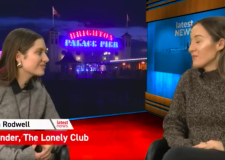In the right vein
Varicose vein treatments help with cosmetic issues & aren’t as painful as you may think
Varicose veins are more common than many of us realise, with around three out of ten adults being affected. The majority of the time, varicose veins do not pose a danger, although complications can develop in rare cases. Most sufferers do not have an underlying health issue, and varicose veins can develop for no apparent reason.
Causes of varicose veins
Varicose veins occur when valves in the veins stop functioning properly. In the legs, these valves stop gravity pulling blood back down as it is pumped towards the heart. When the valves stop doing this, blood ‘pools’ in the veins causing them to swell. This most commonly causes pain and itching but can occasionally stain the skin and eventually cause eczema or ulceration.
More women than men tend to be affected by varicose veins (great news for the guys!), and they will most often appear between the ages of 30 and 40, although they can sometimes appear in teenagers. Once damaged the veins cannot be repaired, but treatments are available, focusing on relieving symptoms and improving the cosmetic appearance.
Treating varicose veins
These treatments range from compression stockings, sclerotherapy injections which cause the veins to shrivel up, minimally invasive closure of the veins using heat delivered by laser or radiofrequency (RF) catheters, through to various forms of surgery. By undergoing surgery, sufferers can have their varicose veins completely removed, reducing those unsightly bulges in the leg that can cause cosmetic issues, and reducing symptoms.
“Much less hassle than traditional surgical methods”
These days though, it is becoming increasingly common to use the less invasive methods to eliminate the problem, although not everyone’s varicose veins are suitable for this sort of treatment. Radiofrequency or laser treatment means only a local anaesthetic is used, and you can be on your way within a couple of hours. This form of treatment minimises the discomfort of removing the veins, and bruising is often minimal, making it much less hassle than traditional surgical methods.
Unfortunately, because most of the problems associated with varicose veins are fairly mild in nature and serious skin damage rare, it is difficult to get them treated on the NHS. However, before opting for any treatment, even privately, it is best to consult your GP.
Most of us afflicted by varicose veins leave them alone, especially if they are not causing pain or discomfort. However, leaving them can in some cases result in bleeding, excessive swelling or even varicose eczema, where the skin flakes.
Wearing compression stockings can help to relieve the symptoms, although this is not a long term cure, and sometimes professional treatment is the only option. Mr Mike Brooks, lead vascular surgeon for the Brighton and Sussex University Hospitals Trust, consults weekly at the Nuffield Health Brighton Hospital. He says it is very important that a full assessment including clinical examination and duplex ultrasound is performed in each case, so that the most appropriate method is used to treat the varicosities. Thankfully, at the Nuffield Health Brighton Hospital in Woodingdean, there are specialists, including Mr Brooks and his colleagues Mr Karim El Sakka and Mr Matthew Button who are only too happy to consult and help with any varicose vein issues you may have. For more information or to make an appointment, contact 01273 627008.
Words: Ciaran Bushby





















